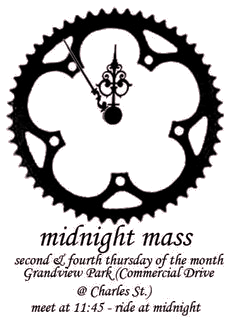Gender, Does It Constrict Us?
~rusl
Guest Blog by Bronwen Besso-Smith
Gender is an artificially constructed way of looking at the world; we tend to see it as innate and unchangeable, but in reality it’s fluid in nature, and fluctuates often. Our society prefers to view gender as inborn…static and clearly defined, we are taught that it’s safer that way.
Many people, including feminists, don’t realise the negative impact sexism and enforced gender norms can have on not only women, but on men too. It’s essential to all of us that we make an attempt to ‘unpack’ what gender means to us.
I view transgendered people as amplified mirrors of the gender struggle that every individual inevitably experiences in their lifetime, although generally in a more subtle way than those who are transgender. For example men aren’t allowed to show a full range of emotions; the ‘be strong’ script they are taught from a very young age precludes sadness and softness (e.g. “boys don’t cry”). Males are often channelled, by culture and training, into less sensitive jobs that don’t involved kids or helping roles.
Women aren’t supposed to be angry [a transition house manager told the workers she supervised that she had noticed the angry women got less attention than other residents]. Little babies are often gender coded by their clothing colors, as their genders aren’t as obvious as those of older children and adults. It’s too scary to us as a society to not be able to easily identify every person’s gender at a glance, even in infants, when gender is completely irrelevant.
This refusal to let each gender show the full range of emotions and experiences is nothing short of a denial of every individual’s innate humanity, which entails the right and necessity to really feel and process all of our emotions.
I am really interested in the way our current brand of feminism seems to leave men out of the conversation. Their views on sexism and the way it impacts them across the board aren’t generally solicited or listened to within the feminist community, much as women’s opinions and strengths are undervalued in society at large. Though I am proud to call myself a feminist, of course, I think this is extremely marginalizing for the movement.
To acknowledge the restrictive gender binary and sexism’s negative impact on men is to no way negate or minimize the extreme impact it has on women. Feminism cannot move forward and be championed by the mainstream until it recognises and acknowledges, and works to rectify the depth and breadth of sexism’s negative impact on men.
Because the feminist movement is in a sense a mirror of our culture, which tends to see most things in extremely black and white terms, it often becomes polarised as us versus them. Women experience so much discrimination that most feminists believe it would discredit the movement to acknowledge the way our society creates male oppression. This limited binary view is very similar to our societal view of gender itself (i.e. black and white thinking).
The way towards a more harmonious world is to think of feminism as a tool or a key to unlocking oppression for any marginalized person in the world, male or female. Feminism can help us to realise the negative and extremely limiting affects of sexism on all genders, and to think of gender as a fluid, non-static entity we build for ourselves as we move through life, not as something imposed on us at birth as part of a rigid genetic code, enforced by society.
 Vancouver Critical Mass
Vancouver Critical Mass











1 Comments:
At 7:53 am, June 24, 2010, Anonymous said…
Anonymous said…
Wow! Thanks for sharing these thoughtful observations, Bronwen. I agree that everybody has something to gain from more freedom and less judgement when it comes to gender (even though many also have some inappropriate and unsustainable privileges to part with). To borrow a phrase from bell hooks, feminism is for everyone! You rock. -Alana Chuk
Post a Comment
Please be respectful and constructive. If you want to vent or hate do it somewhere else. Violent, threatening and abusive comments will be removed. Please read other posts and discussion to avoid duplicate questions.
<< Home